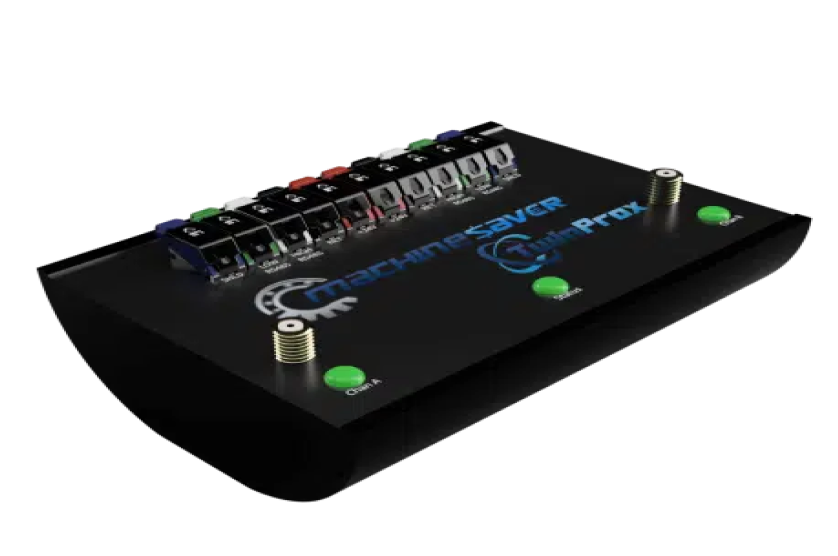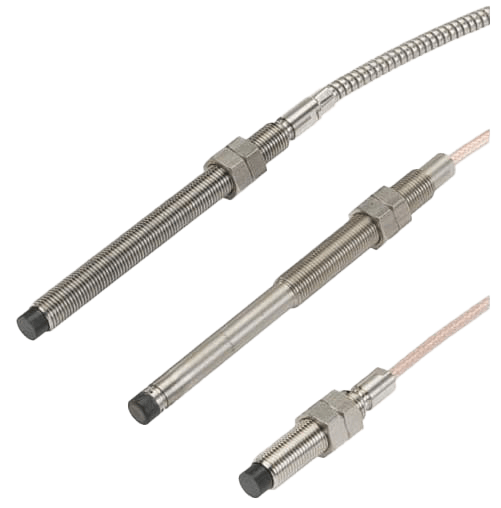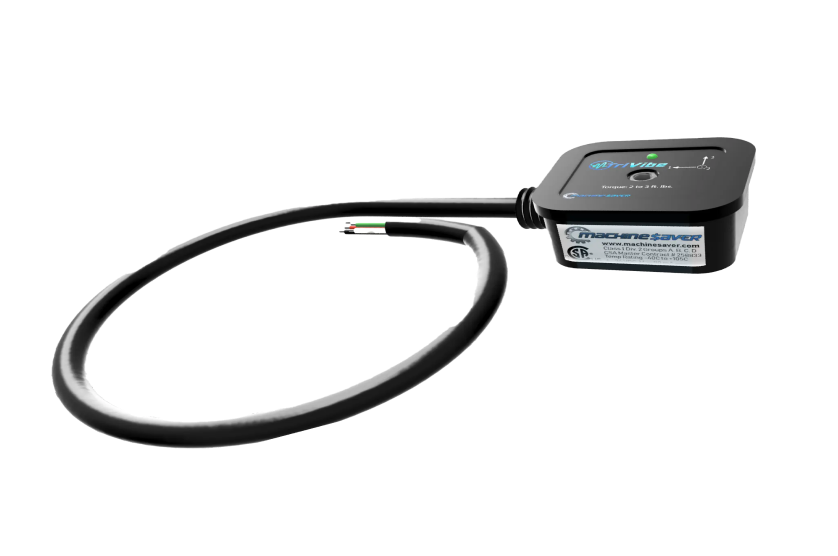Compressor Vibration Monitoring & Analysis
Natural gas compressors play a pivotal role in the energy sector, and their operational integrity is crucial. Vibration-related issues in these compressors can lead to inefficiencies and potential failures. The Trivibe sensor from Machine Saver offers advanced monitoring capabilities, including impact monitoring, which is particularly effective for detecting mechanical looseness and valve failures. The compressos vibration analysis report examines the technical and financial benefits of employing Trivibe sensors in natural gas compressors.
Common Vibration Failures in Natural Gas Compressors
- Mechanical Looseness: Looseness of components in cylinder can cause irregular vibrations, leading to further damage.
- Valve Failures: Valve issues in compressors are a common problem and can significantly affect performance--these can be detected by impact mode Trivibe sensors.
- Imbalance: Imbalance in rotating parts can cause excessive vibration, leading to wear and tear.
- Misalignment: Misalignment of shafts or components can result in uneven operational forces.
- Bearing Wear: Bearings are critical in compressor operation, and their failure can cause significant vibration.

Technical Considerations
High-Resolution Vibration Analysis:Trivibe’s capability of over 50,000 samples per second allows for detailed compressor vibration analysis, essential for identifying issues in compressors.
- Benefit: Enables early detection of faults, preventing major breakdowns.
Trivibe’s impact monitoring mode is particularly effective in identifying the unique vibration signatures of mechanical looseness and valve failures.
- Benefit: This feature allows for targeted maintenance of components, enhancing the reliability and safety of the compressor operations.
The sensor’s filter options enable precise tuning to the compressor’s specific operational frequencies.
- Benefit: Tailored monitoring for more accurate and actionable data.
The RS485 port ensures seamless integration with various industrial control systems.
- Benefit: Simplifies data management and allows for comprehensive monitoring setups.
Financial Considerations
Reduction in Maintenance and Downtime Costs:Predictive maintenance, facilitated by early vibration detection, decreases the need for emergency repairs and reduces unscheduled downtimes.
- Benefit: Long-term cost savings from improved operational efficiency and lower repair costs.
While the upfront cost of Trivibe sensors might be higher than conventional monitoring systems, the benefits of reduced maintenance needs and increased operational uptime justify the investment.
- Benefit: Favorable ROI due to extended equipment life and reduced maintenance frequency.
The ease of installation and minimal maintenance requirements of Trivibe sensors contribute to lower overall operational costs.
- Benefit: Cost-effective implementation and operation, particularly important in large-scale natural gas compressor facilities.
Conclusion
Incorporating Trivibe sensors into natural gas compressor systems is a sound technical and financial strategy. The sensors offer precise vibration analysis and specialized impact monitoring, crucial for early detection of mechanical looseness, valve failures, and other common issues. Financially, the reduction in maintenance costs and minimization of unplanned downtimes, coupled with improved operational efficiency, make the Trivibe sensors a worthwhile long-term investment for maintaining the health and efficiency of natural gas compressors.
We can customize vibration solutions to fit your needs
Request For QuoteRecommended Products
- TwinProx
- Proximity Probes (sleeve or oil-lubricated bearings, also used with TProx for rod drop/reversal detection)
- Trivibe (Continuous near real-time data on roller element bearings, and impact monitoring on cylinders)
Why choose machine saver?
We are the fastest growing vibration technology company in the world
At Machine Saver, we have established ourselves as an industry leader in vibration monitoring through our relentless pursuit of excellence and innovation.
Contact Us





